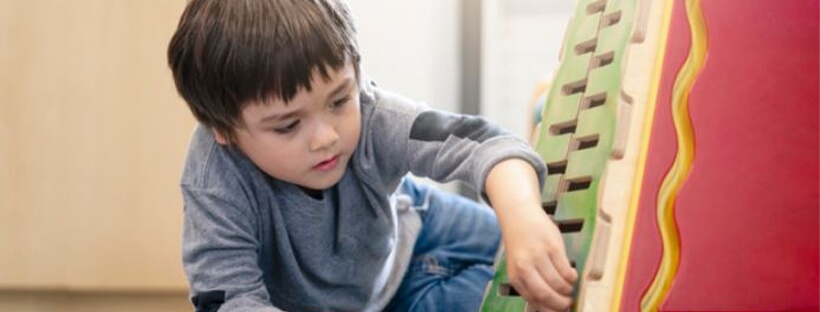Kids and Early Year Learning
 23197
23197

As new moms, we always have questions about how we can help our children to grow up to be intelligent and independent. The early years of a child’s life are when their brain develops rapidly and is always processing outside information to make sense of the world they have entered. The first five years of a child’s life are fundamentally important; this is when the child learns to walk, talk, perceive, and convey their emotions to their parents. New mothers are always encouraged to communicate with their children as much as possible to encourage speaking and listening skills in the child. A lot of children take time to start talking mainly because of the lack of interaction with their parents or the lack of communication between family members. As children learn primarily through observing, it is of utmost importance to create an environment that stimulates learning through their surroundings. These are some tips to encourage learning in your children
1) Interact
Whether you’re a stay at home mom or a working mother, you must find the time to talk to your baby and encourage the child to respond to you. This is also the time for language development so if you and your spouse speak different languages, try to talk to your child in both languages so that your child is able to pick up the words along the way.
2) Play
Building blocks, legos, puzzles, and other similar toys that induce the formation of patterns to help boost your child’s analytic reasoning and increases their ability to solve tasks. Aside from this, choosing games and toys that have vivid colors, patterns and are unique will help the child engage with things they aren’t accustomed to and will encourage curiosity and the need to learn.
3) Read
Learning the alphabet and getting them picture books, storybooks with fairytales, and mythology can instill an innate interest in reading, which will, in the future, help build their vocabulary, grammar, verbal fluency, and comprehension. A constant fear among parents is their children’s lack of interest in their studies, and early encouragement towards reading will help the child view learning as something fun and memorable rather than tedious and boring.
4) Technology should take a backseat
in the age of smartphones, laptops, television; we can find difficulty in keeping them away from a screen. But it’s important to know that early exposure to electronics can stunt the growth of our children if the content they consume is unintelligent. At the same time, there are tv shows that are educational; phones can help with communication if both parents aren’t home at all times. Technology has its pros and cons, but it’s best to be careful about its use in children who aren’t old enough to know what’s correct for them.
5) Explore the Outdoors
Due to the changing times, lesser and lesser kids seem to be playing outside and tend to stay at home. Playing outside with same-age friends is key in early childhood as it builds the foundation for adult relationships as well; being able to empathize with children of the same age and get along with them is important for their socialization and bonding creates leadership skills and helps form relationships that last long. Playing in the park or a friend’s house exposes them to a new environment that they aren’t used to, which will help them explore and develop a sense of the outside world; it has also been found that children who are exposed to the outside world from early years are seen to have better spatial abilities and a better sense of direction.
6) Hug’s helps
The most important point of all is to shower your child with love and affection. Research shows that parents who openly express their affection have children who grow up to be more self-confident, self-assured, and intelligent compared to children with neglectful parents. It is important to express our love and care openly to the child as they, too, will reciprocate this emotion, and it will instill a strong bond between the mother and the child. This can be done in several ways, such as playing with the child, talking to them, listening to them actively, keeping them close to you at and spending time with them as much as possible. These are all just some ways that encourage early year learning in children and help them to grow up to be focused, intellectual, and affectionate. Helping your child’s cognitive growth development can take a good amount of effort, but it’s also to be noted that your child will continue to learn even if you don’t do these things as humans have an innate tendency to learn. What is important is to instill the need to learn beyond their childhood and into adulthood so that they never lose their sense of curiosity and thirst for knowledge. You may make mistakes along the way and may not be there when needed, but you too are human, and this is your first time raising a child; we can’t be perfect at the first time, but we can be loving and kind.
Follow us-
Instagram/ Facebook/ Youtube/ Pinterest





Leave a Reply